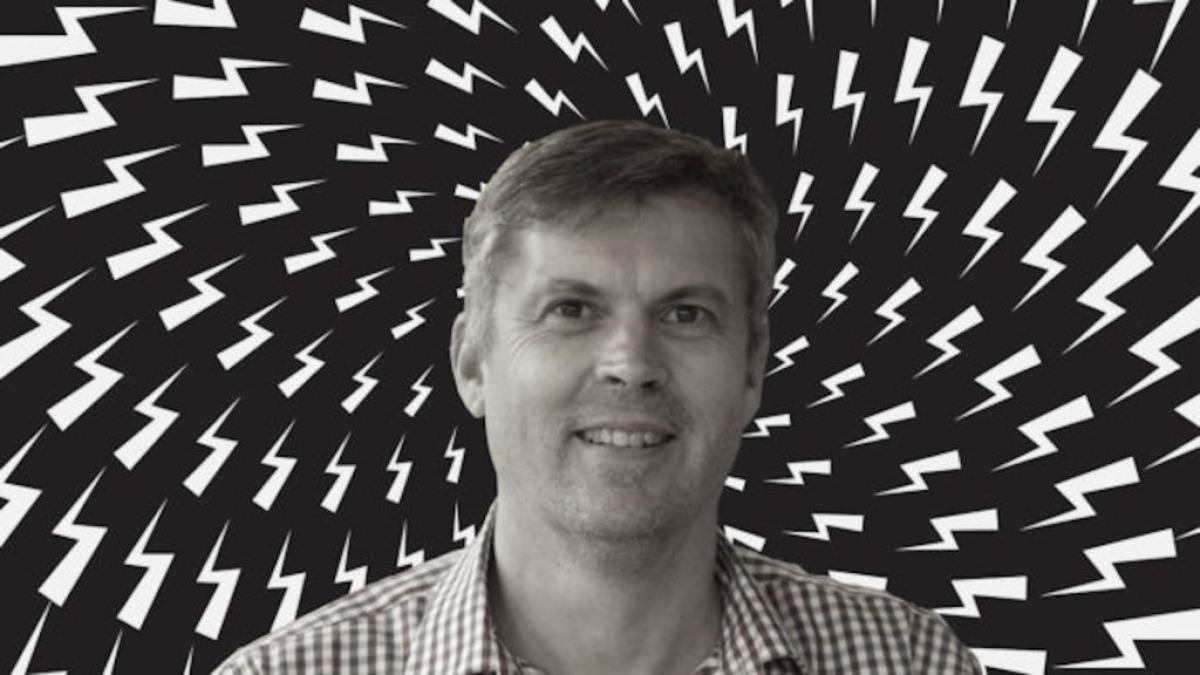Dr Boreham’s Crucible: Thomas the change engine plans improved track for Mach7

Tim Boreham is one of Australia's leading business journalists. Pic: supplied
Mach7 Technologies (ASX:M7T) shareholders, customers and staff should know what to expect from new CEO Teri Thomas, who is adopting a similar playbook to the one to which everyone sang along at breast imaging house Volpara Health Technologies.
It’s likely to be a very different tune to the somewhat tired one they have been hearing.
As CEO of Volpara, Thomas espoused the need to better understand customers, while having fun along the way.
The company even adopted a mascot: the endangered blue footed booby.
There was a hard edge, too, as she oversaw the departure of 20 of Volpara’s 180 staff.
“Some people might have seen us as not-for-profit, but we are not,” she said at the time.
In her early days at Mach7, Thomas has adopted a similar modus operandi at the underperforming provider of medical image viewers and storage systems.
Tsunami of change
Thomas is reserving her change manifesto for a strategy update next month, but changes are already reverberating around Mach7’s US head office in Burlington, Vermont. (Officially, Mach7 is headquartered in Melbourne.)
In her first month, Thomas overhauled the customer support function.
Chief operating officer David Madaffri and head of services Lisa Thompson have left the building, while chief finance officer Dyan O’Herne departs at the end of September.
Thomas also hired a chief innovation officer, Paul Jensen, to improve processes and productivity and artificial intelligence adoption.
“My overall assessment of Mach7 is that it is an overall stable company that provides good value and software that works,” she says.
“But it’s not perfect – and that’s good news because it means there are things we can improve that will pay dividends.”
About Mach7
Mach7 provides diagnostic and imaging tools to radiologists, oncologists, cardiologists – and other ‘ologists’ – via digital picture archive communications systems, or PACS.
In effect, the company takes images, videos and documents and consolidates them on the one platform. The data can then be managed and accessed via ’phones, devices or web browsers.
Mach7’s wares are ‘vendor neutral’, which allows any provider’s imaging tools to be integrated on the platform.
The company has surfed the move to digital records, which enables hospitals and clinics to aggregate an individual’s medical history for easier access.
Mach7 was founded in 2007 by Singapore-based image workflow expert, Ravi Krishnan; and launched its first product in 2012.
In March 2016, the company merged with the ASX-listed diagnosis house 3D Medical – a reseller of Mach7’s products – in a share deal.
(3D Medical should not be confused with the ASX-listed lung imaging house, 4D Medical.)
The holder of a zoology degree and a registered nurse, Thomas took over from Mike Lampron, a former US air force medic.
Prior to Volpara, Thomas had a 20-year career at the Wisconsin-based electronic medical record provider, Epic.
In 2020, Mach7 bought Canadian outfit Client Outlook for around $40 million. The purchase expanded the company’s repertoire from ‘back end’ – the archiving of images and other data – to image viewing.
The company has a presence in 15 countries and 165 customers including Advocate Aurora Healthcare, Adventist Health Tulare, Penn Medicine, Massachusetts General Hospital, University of Virginia Health System, Broward Health (a top 10 hospital owner) and Maine Health (a state-wide healthcare provider).
While Mach7 is US-focused, in 2018 the company won a seminal $15 million deal with the Hospital Authority of Hong Kong.
Learning from Volpara
Thomas says she learnt much from Volpara, her first stock exchange-listed gig.
She says Volpara had a research culture rather than commercial orientation and she was brought-in to rectify that.
Thomas was offered the top job after advising founder and CEO, Dr Ralph Highnam, who wanted to step away from the latter role.
“I felt really confident about driving leadership, culture, sales and strategy, but I could barely spell ‘investor relations’,” she says.
One imperative was to navigate the gap in Australian investors’ understanding of the US health system.
For instance, investors asked whether Volpara provided for the US national breast screening program. Unlike here, it doesn’t exist.
“I needed to slow down, back up and tell the story a little more clearly; and more carefully couch investor expectations.”
Bottom of the class
Thomas is blunt about the ordinary scores ascribed to Mach7 by the influential US healthcare ratings outfit, KLAS (pronounced ‘class’) Research.
“They suck,” she says.
The ratings – including an ‘F’ for corporate culture – prompted Thomas immediately to tweak the customer support and sales team so they worked “closely and collaboratively” with customers.
“If a customer has a problem, they don’t go to a faceless bank of people waiting to respond,” she says.
“They will either be able to call someone, or a team that knows their story.
“In the very best cases [Mach7’s reps] know the customer’s kids’ names and pets’ names.”
Less, not more
At Volpara, Thomas redirected the company to the biggest “elephant” – customers.
While it’s too early to talk about chasing Mach7’s pachyderms, Thomas flags a move from the company’s ‘all-comers’ approach to taking on clients.
She says Mach7 has tried to sell a viewer or archive to anyone – “regardless of their size or approach”.
“It’s hard to compete against every vendor that might service one of these customers. Rather than going more broadly, I want to narrow our focus to ensure we know where we can win best and strengthen our promotion.”
Thomas is also a fan of high customer conversion rates.
“I would rather do a ruthless qualification process to ensure good customer-product fit, than play the numbers and have a massive pipeline that may not be the best fit.”
While Mach7’s sales pipeline is not at the level where she would like it to be, Thomas says there are “some really exciting prospects.”
Most of the revenue to date has derived from contract expansions.
Defence job ‘on track’
Thomas has reassured investors about the progress of a large, delayed contract with the US Veterans’ Health Administration.
The job is to support the sprawling organisation’s National Tele-radiology Program.
Mach7 is part of a five-member consortium, providing its picture archiving and communications systems.
Announcing the contract in July 2023, Mach7 said the phase one roll-out potentially was worth $11.7 million over three years. This rises to $47.9 million for the second five-year phase.
The system was meant to have cranked up by December last year and Thomas hopes this will happen later this year.
“It’s progressing,” Thomas says. “It’s big, it’s complicated and we are one of a number of vendors who need to come together for this solution to go live.”
Did someone mention Pro Medicus?
Mach7 operates in the shadow of a giant: the “phenomenally successful” $32 billion market cap Pro Medicus.
“I respect Pro Medicus, I like their mechanisms of engagement,” she says.
“They don’t try to be everything to everyone.”
Pro Medicus caters for bigger institutions with deep pockets, although it’s starting to target smaller organisations and ‘ologies’ (where Mach7 is strong).
“In some ways we are frenemies … their value proposition to a company is different than ours,” Thomas says.
She says at least nine companies use Pro Medicus and Mach7 products side by side.
However, there’s a risk Trinity Health will not renew after Pro Medicus last November signed up the Integrated Delivery Network (IDN) on a $330 million 10-year deal for its whole suite of services.
Otherwise, Mach7 competes with the likes of Carestream (Kodak), Agfa, Fujifilm, GE Healthcare, Siemens and Philips.
Finances and performance
Mach7 reported revenue of $33.8 million for the year to June 30 2025, 16% higher and in-line with the company’s guidance.
The net loss improved to $6.2 million, from an $8 million deficit previously. The underlying loss of $1.5 million compared to a previous $3.3 million shortfall.
Recurring revenue gained 20%, to $25.3 million.
Thomas says the company is considering shifting some research and development expenditure into lower-cost geographies, notably Malaysia.
Research and development expenditure also could be boosted in selected product areas, but this depends on the company better defining its target customers in the first place.
Mach7 ended the quarter with $23.1 million of cash.
The debt-free Mach7 has been undertaking a share buyback, for up to $5 million of stock. As of June 30, the company had outlaid $2.2 million, but the program has been frozen pending the result of the strategic review.
Over the past 12 months, Mach7 shares have traded between 60 cents in mid-August last year and a current low of 30 cents.
They hit a record high of $1.50 in February 2021 and a nadir of 11 cents in June 2017.
Dr Boreham’s diagnosis
While Mach7 gains sales traction, it’s all happening at less than warp speed and the ebbing share price – down more than one-third over the last 12 months – continues to disappoint.
While a natural and engaging speaker, Thomas is prone to marketing rhetoric such as customer roadmaps and ‘flywheels’ and finding ‘north stars’.
But she’s cognizant the bottom line of achievement is bottom line improvement.
On this note, Thomas improved Volpara’s earnings and share price, before the company was taken over by South Korea’s Lunit in late 2023.
Learning of the unedifying KLAS ratings, Thomas flew straight to the agency’s Salt Lake City digs to talk about how to improve things.
While it’s still a long way to the top of the KLAS, she hopes Mach7 at least can win ‘most improved’ award.
Mach7’s crucial strategic update is likely to coincide with Halloween – and Thomas hasn’t ruled out dressing for the occasion.
Hopefully, her costume will be the only thing that scares investors.
“I love keeping things fun,” she says. “The investor world can be deathly boring”.
At a glance
ASX code: M7T
Share price: 31 cents
Shares on issue: 234,968,047
Market capitalisation: $72.8 million
Chief executive officer: Teri Thomas
Board: Robert Bazzani (chair), Thomas, Dr Eliot Siegel, Rebecca Thompson
Financials (year to June 30, 2025): revenue $33.8 million (up 16%), net loss $6.2 million ($8 million deficit previously), underlying loss $1.5 million ($3.3 million deficit previously), cash balance $23.1 million (down 12%)
Major shareholders: Australian Ethical 14.46%, JM Financial 11.76%, Microequities Asset Management 9.5%
Disclosure: Dr Boreham is not a qualified medical practitioner and does not possess a doctorate of any sort. He is the recipient of numerous ‘most improved’ and participation awards and tries not to be too boring.

UNLOCK INSIGHTS
Discover the untold stories of emerging ASX stocks.
Daily news and expert analysis, it's free to subscribe.
By proceeding, you confirm you understand that we handle personal information in accordance with our Privacy Policy.








